After the COVID-19 pandemic, the world lives at a completely different pace than in the pre-COVID times. Spain was no exception in transitioning to online mode: work, study, shopping — all this became available remotely. The role of the city as the epicenter of life and the apex of everything a person needs has become less obvious. People realized that it is possible to live and work from anywhere, so there is no need to sit in stuffy offices in a metropolis.
People’s consciousness has also transformed — family and home have become a focal point for many. Some Spaniards have moved from cities to the countryside — and relocators are not far behind, increasingly choosing quiet and peaceful places to move to. We explain why Spanish provinces are so good and whether it is worth moving from the city to the countryside.
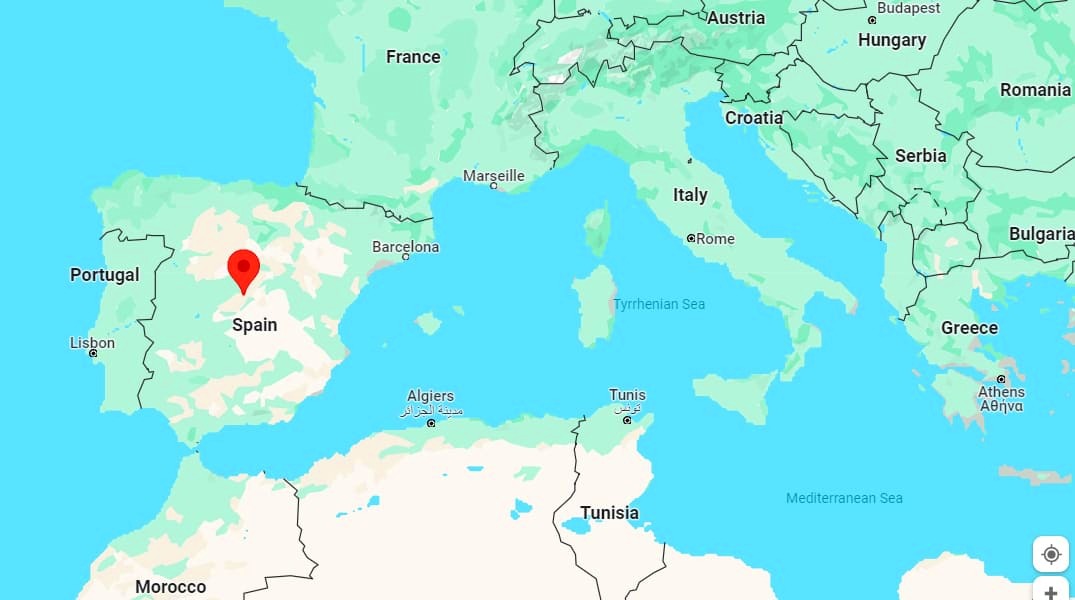
Contents
- What are the villages in Spain like?
- Top 5 small towns in Spain for living in the countryside
- The benefits of living in the countryside of Spain
- Where is it cheaper to live in Spain?
What are the villages in Spain like?
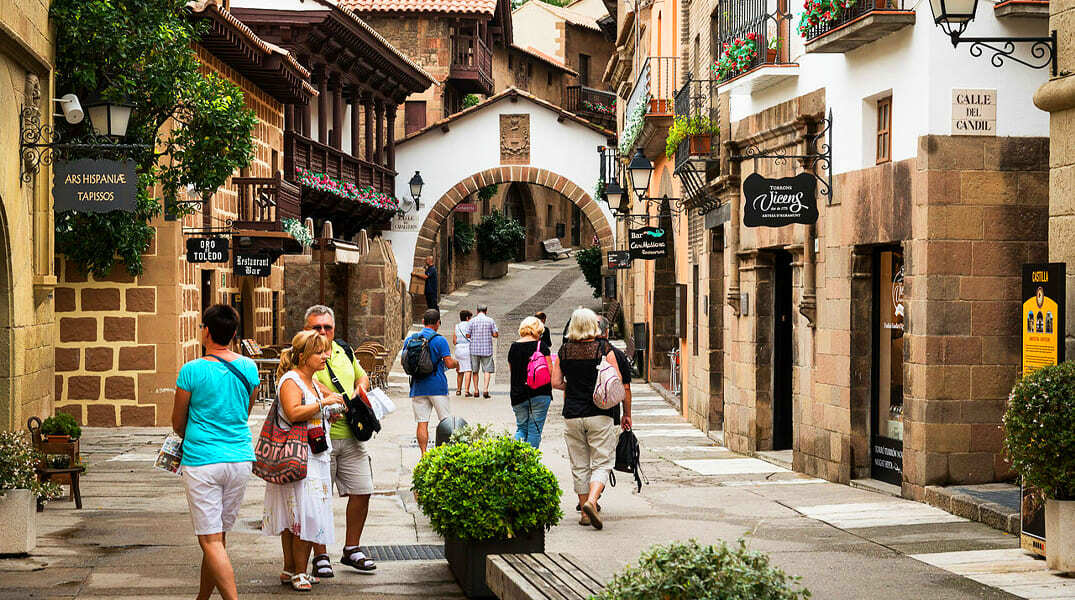
Each settlement in the hinterland is attractive in its own way. Spanish villages are fundamentally different from the established notion of rural life: there are no semi-destroyed leaning houses, unpaved roads, and abandoned infrastructure objects. Well-maintained houses in the suburbs are located in ecologically clean areas, with a wonderful climate and mesmerizing landscapes. Being far from the center and large cities does not mean losing comfort and the gifts of civilization. The desire of city dwellers to move to the suburbs is also explained by the opportunity to develop agricultural business and tourism. The population of such places rarely exceeds a few thousand people, so it will be most comfortable here for those who are not interested in a bustling nightlife, constant parties, and a lot of noise.
Top 5 small towns in Spain for living in the countryside
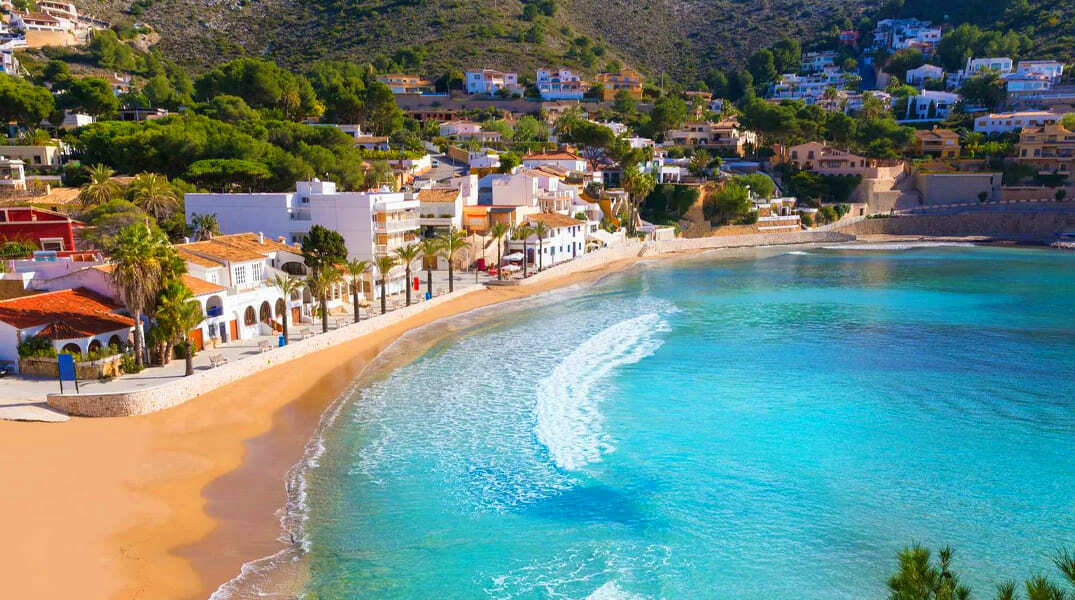
- Teulada — located in the province of Alicante, a coastal town on the Costa Blanca. The population is approximately 14,500 people, but the data is constantly changing. City attractions: Parish Church of Saint Catherine, the city concert hall with panoramic views of the mountains and the Mediterranean Sea, the entrance to the city Sea Gates — part of the fortress wall. A historical place for producing the best dessert wine in Valencia. All beaches are located within a 10-minute ride on public transport. The temperature in summer rarely drops below +300C, and there are no more than 5 rainy days in a month. The city has many restaurants and shops, houses, and villas.
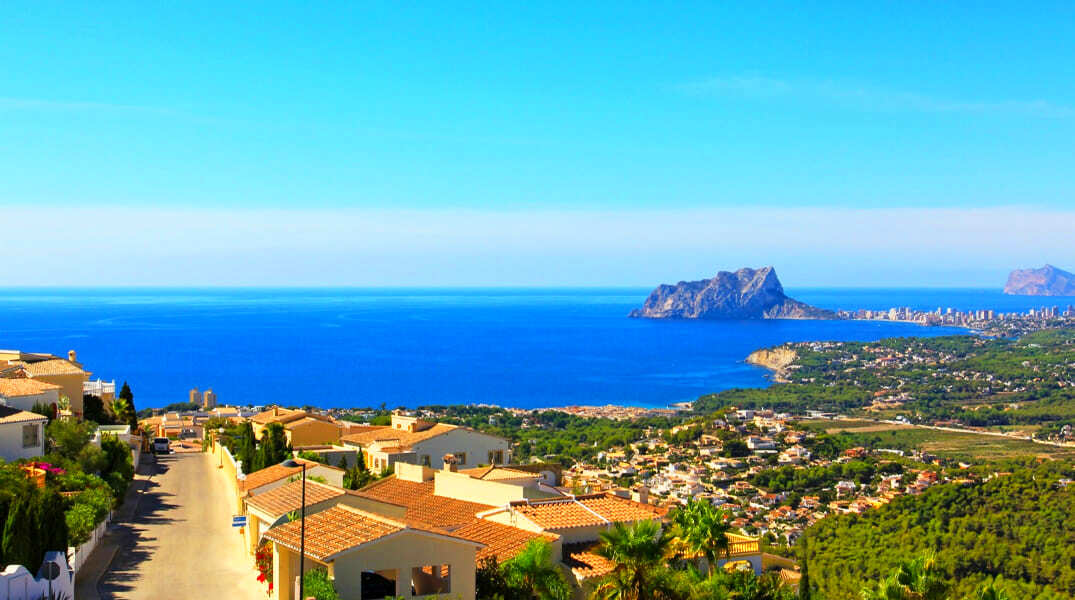
- Benitachell — located in the province of Alicante. A quiet picturesque town with all amenities. The territory is covered with almond alleys, olive groves, and orange gardens. Rocky cliffs give way to quiet lagoons. The town is widely known for fishing, local wine production, agriculture, and a craft called wickerwork: making hats, baskets, bast shoes. A large part of the population is foreigners, so English is sufficient for full communication with people. Benitachell is considered an area built up with elite real estate, but there are also affordable options.
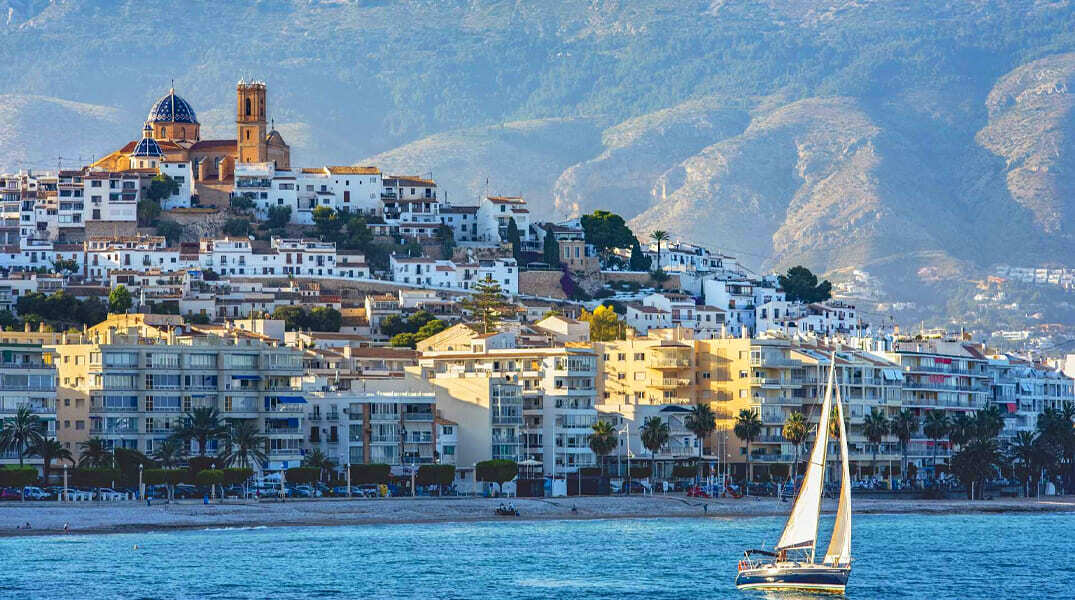
- Altea — a municipality in the province of Alicante, in the Marina Baja region. A center of attraction for a large number of tourists. The lively infrastructure includes bars, cafes, restaurants with terraces. A calm place for walks along the promenade of ports, which attracts artists, poets, and other people of art. Many retirees come here to spend their old age. All street roads lead to the sea. The basis of the economy is agriculture and fishing. Architectural attractions include the ruins of a castle and the Church of Our Lady of Consolation. Notably, it is forbidden to build houses higher than four stories in the city.
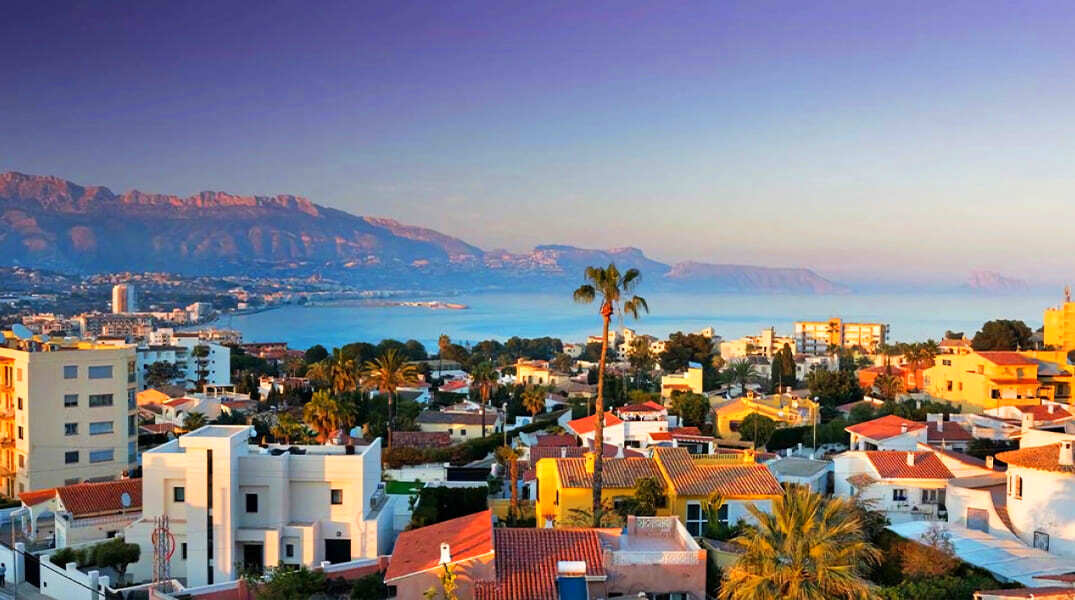
- Albir — a small town near Benidorm. The spacious architecture of the buildings is combined with a green area, framed by a chain of cozy residential houses not exceeding five floors. The promenade is dotted with numerous cafes with fresh seafood and vegetables. Albir’s landmark is the dry river that once flooded the city streets. After the river was drained, a promenade with exotic plants was opened. Houses, villas, cottages, and bungalows are immersed in living green hedges. Space is allocated for vineyards and orange trees. A true paradise city without unnecessary fuss.
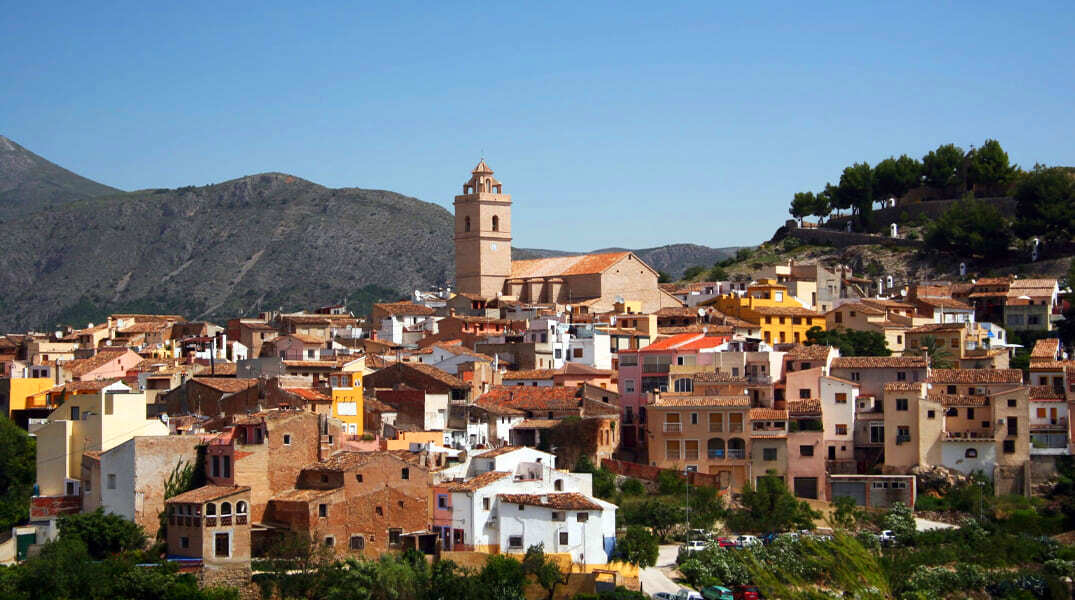
- La Nucia — located in the province of Alicante. Foreigners represent a third of the city’s population. Fertile lands that allow harvesting vegetables and fruits twice a year attract relocators. Another profitable area is tourism. New real estate objects are actively being built — from bungalows and townhouses to luxurious villas. La Nucia is considered a major youth and sports center. There are many attractions and interesting places: an antique and vintage market, observation decks, and ancient chapels. The city has many bike paths, sports grounds, stadiums, and tracks.
The benefits of living in the countryside of Spain
Today, an increasing number of Spaniards prefer a quiet and measured life in the countryside rather than living in a stuffy and noisy metropolis. This is explained by several reasons:
- Good environmental conditions beneficial for health and the birth of healthy offspring.
- The absence of stress caused by the fast pace of life in metropolises. Rural people are also busy with affairs, but there is a certain measuredness in their life, so they look simpler at many things.
- Realization of entrepreneurial abilities in agriculture. Today, there is a high demand in the world for organic products and everything related to “eco”. Therefore, if desired, one can start earning by selling farm vegetables and fruits.
- Healthy food — fresh vegetables, fruits, seafood, and meat without artificial additives.
- Developed infrastructure: the opportunity to visit bars, restaurants, shops. This is not an advantage over the city, where there are objectively more entertainment establishments, but a statement that Spanish villages are not deaf villages where the only “entertainment” is a hoe and a plow.
- Medicine at the highest level. Hospitals with the most modern equipment are located not only in cities but also in rural areas.
- Less financial expenditure. This applies not only to buying products or the cost of real estate but also to taxes and government duties — in villages, they are usually significantly lower than in large cities.
- Security and the absence of a criminogenic situation. Families and people of a fairly mature age most often move here, so a priori there is less likelihood of encountering trouble on the street.
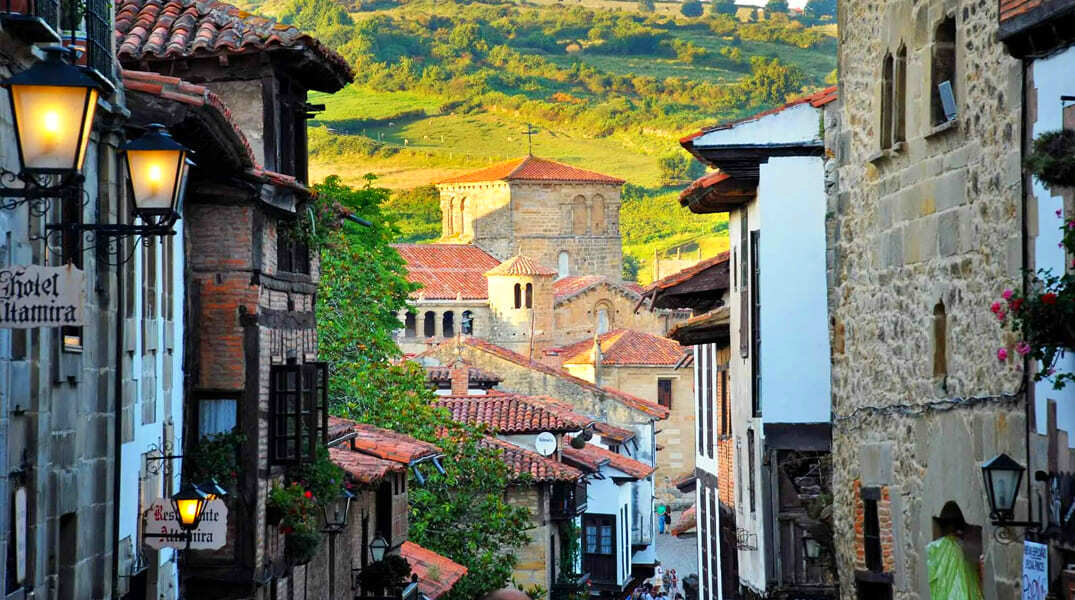
Where is it cheaper to live in Spain?
The concept of “cheap” is hardly applicable to a European country, but even here you can find many places with relatively affordable real estate and adequate prices in local stores. Spain is generally considered a country with a relatively low cost of living, which favorably distinguishes it from England, Germany, and many other European countries. Yes, there are cities like Madrid, Barcelona, and Malaga, where everything is quite expensive, but even here you can find a considerable number of cities where you can move without much harm to your wallet.
Let’s just mention some of such places:
- Finestrat — a mountain village with narrow streets, whitewashed houses, and steep slopes. In the eastern part of the coast, there are areas of new development with developed infrastructure. There are not so many tourists in the city, so local establishments do not raise the price “to the sky”. Many sports, children’s playgrounds. The territory of the settlement is about 42 km2 with a population of about 8 thousand people.
- Benissa — located in the province of Alicante. It surpasses other areas in the number of protected natural park zones. The Benissa area is considered one of the most affordable in terms of real estate prices. Among the attractions of this city, one can highlight the town hall building, the Old Church Square, and the public library. Benissa is a paradise for athletes: cyclists, divers, and rock climbers. The demand for housing is not inferior to Finestrat.
- Moraira — a distinctive fishing village. There are several restaurants specializing in seafood dishes. Among the attractions is the Gothic church of Saint Great Martyr Catherine. A quiet place implies a leisurely measured life without special expenses.
It is impossible to say exactly which city in Spain is better to live in. Each of them is attractive in its own way, so everything depends on the worldview and habits of the person himself. Someone loves places of tranquility, diluted with natural ease and simplicity. Someone needs noisy holidays and unrestrained parties. Today, most people strive to be alone with nature, bypassing the hustle and bustle of city streets. If you are also thinking about moving to such a place, then we recommend considering the possibility of exchange of housing with the help of the real estate agency “M2 Real Estate”. Our specialists will help you choose the right option and solve any legal issues.


